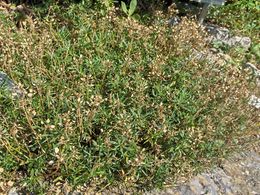Candytuft
| subsp. var. | ||||||||||||||||||||||||||||||||||||||||||||||||||||||||
|---|---|---|---|---|---|---|---|---|---|---|---|---|---|---|---|---|---|---|---|---|---|---|---|---|---|---|---|---|---|---|---|---|---|---|---|---|---|---|---|---|---|---|---|---|---|---|---|---|---|---|---|---|---|---|---|---|

|
|
| ||||||||||||||||||||||||||||||||||||||||||||||||||||||
| ||||||||||||||||||||||||||||||||||||||||||||||||||||||||
| Standard Cyclopedia of Horticulture |
|---|
|
{{{1}}} The above text is from the Standard Cyclopedia of Horticulture. It may be out of date, but still contains valuable and interesting information which can be incorporated into the remainder of the article. Click on "Collapse" in the header to hide this text. |
| Iberis {{{status}}} Fossil range: {{{fossil_range}}}
| ||||||||||||||||||||||||||||||||||||||||||||||||||||||||||||||||||
|---|---|---|---|---|---|---|---|---|---|---|---|---|---|---|---|---|---|---|---|---|---|---|---|---|---|---|---|---|---|---|---|---|---|---|---|---|---|---|---|---|---|---|---|---|---|---|---|---|---|---|---|---|---|---|---|---|---|---|---|---|---|---|---|---|---|---|
 Perennial candytuft (Iberis sempervirens) | ||||||||||||||||||||||||||||||||||||||||||||||||||||||||||||||||||
| Plant Info | ||||||||||||||||||||||||||||||||||||||||||||||||||||||||||||||||||
| ||||||||||||||||||||||||||||||||||||||||||||||||||||||||||||||||||
| Scientific classification | ||||||||||||||||||||||||||||||||||||||||||||||||||||||||||||||||||
| ||||||||||||||||||||||||||||||||||||||||||||||||||||||||||||||||||
| [[{{{diversity_link}}}|Diversity]] | ||||||||||||||||||||||||||||||||||||||||||||||||||||||||||||||||||
| {{{diversity}}} | ||||||||||||||||||||||||||||||||||||||||||||||||||||||||||||||||||
| Binomial name | ||||||||||||||||||||||||||||||||||||||||||||||||||||||||||||||||||
| {{{binomial}}} | ||||||||||||||||||||||||||||||||||||||||||||||||||||||||||||||||||
| Trinomial name | ||||||||||||||||||||||||||||||||||||||||||||||||||||||||||||||||||
| {{{trinomial}}} | ||||||||||||||||||||||||||||||||||||||||||||||||||||||||||||||||||
| Type Species | ||||||||||||||||||||||||||||||||||||||||||||||||||||||||||||||||||
| {{{type_species}}} | ||||||||||||||||||||||||||||||||||||||||||||||||||||||||||||||||||
| Species | ||||||||||||||||||||||||||||||||||||||||||||||||||||||||||||||||||
| Iberis amara - rocket candytuft Iberis gibraltarica - Gibraltar candytuft | ||||||||||||||||||||||||||||||||||||||||||||||||||||||||||||||||||
| [[Image:{{{range_map}}}|{{{range_map_width}}}|]] | ||||||||||||||||||||||||||||||||||||||||||||||||||||||||||||||||||
| Synonyms | ||||||||||||||||||||||||||||||||||||||||||||||||||||||||||||||||||
| {{{synonyms}}} |
Iberis is a genus of flowering plant belonging to the family Brassicaceae. It comprises herbs and subshrubs of the Old World. These species are commonly known as candytufts. Used in Homeopathy for nervousness and muscle soreness. According to the US Dispensatory (1918)the leaves, stem, and root are said to possess medicinal properties, but the seeds are most efficacious. The plant appears to have been employed by the ancients in rheumatism, gout, and other diseases. In large doses it is said to produce giddiness, nausea, and diarrhea, and to be useful in cardiac hypertrophy, asthma, and bronchitis in doses of from one to three grains (0.065--0.2 Gm.) of the seed. Currently the foliage and stalks are employed in German Phytomedicine as a bitter digestive tonic.
The genus Iberis consists of about 50 species of annuals, perennials and evergreen subshrubs. They are excellent for rock gardens, bedding and borders. Candytuft is a fast-hardy, fast-growing annual with lance shaped green leaves. It reaches a height of about 12 inches with a spread of about 6 inches. Lightly trim after flowering.